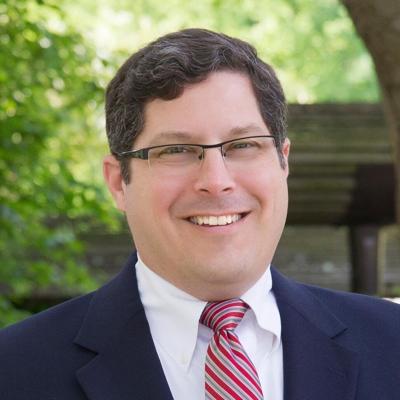
Paul Cecala speaks at the July 17 PSG of Mercer County meeting.
Job hunting is never easy, and the constraints imposed by the current pandemic only make it harder. The handshakes and face-to-face interactions fostered a networking events have been replaced by Zoom meetings, and job applicants lucky enough to score an interview must navigate the unfamiliar etiquette of completing the hiring process virtually. Nevertheless, with unemployment on the rise many people find themselves in the unenviable position of looking for work.
But there are ways to make the jobs search less unpleasant, starting with asking for help. Paul Cecala, a certified career coach, recommends enlisting a “work search buddy”: an acquaintance who is also looking for work and can help keep you motivated and hold you accountable.
Cecala presents at a virtual meeting of the Professional Service Group of Mercer County on Friday, July 17, at 9:45 a.m. To join the free session visit www.psgofmercercounty.org.
Cecala, based in Parsippany, has two decades of experience in career counseling for recent college graduates and adults. He holds a bachelor’s degree in psychology from the Florida Institute of Technology. In May of this year he published a book, “Work Search Buddies: Finding a Job with a Little Help from a Friend,” available on Amazon.com.
In his book, he offers advice on who constitutes a good work search buddy — or WSB — and what their role should be:
“A Work Search Buddy is someone with whom you can navigate the work search process. She is a friend or professional acquaintance who is also in work search. Buddies are willing to work together and hold each other accountable for their own work search goals.
“A WSB is someone who is independent from the rest of your life. Your buddy needs to be someone whom you can trust on multiple levels. For example, you really do not want your buddy ‘airing your dirty laundry.’ You want to know they can keep your conversations private. Additionally, you need to trust your buddy to give you the difficult advice you may not want to hear. Likewise, you need to be comfortable enough to deliver that same kind of advice to your buddy.”
Cecala cites the types of questions WSBs can ask each other to help stay focused and motivated and to keep from becoming demoralized by rejection. The questions include:
• What are you going to accomplish today?
• Did you meet your goals for yesterday? If not, why not? How can you prevent that from happening again?
• What are the roadblocks or obstacles that are in your way of accomplishing that?
• What is preventing you from moving forward today?
•Is that really the best use of your time today?
Ultimately, Cecala concludes, “Working with a Work Search Buddy can help keep you motivated, enabling you to look past the rejections to the positives in experiences, learn new ways of being successful in your search, and especially help you be accountable for the actions required to move the search forward every single day.”


